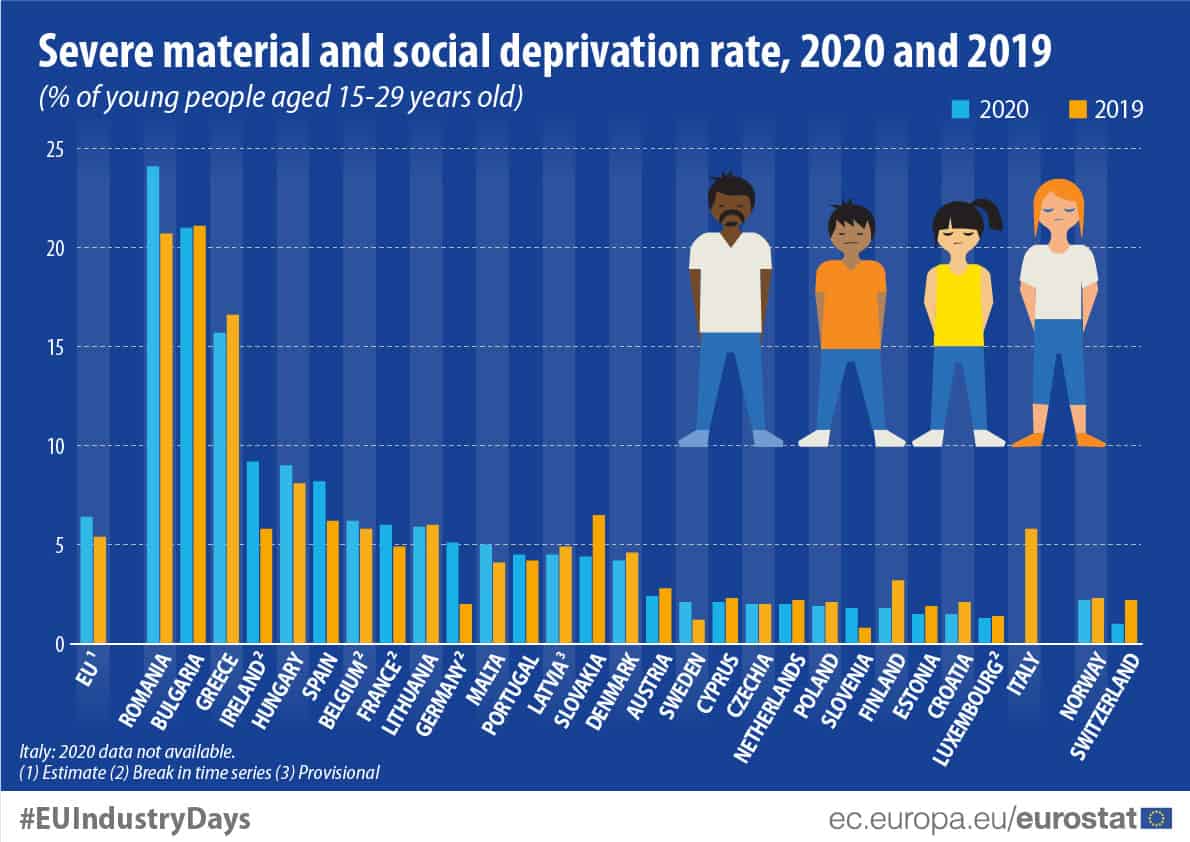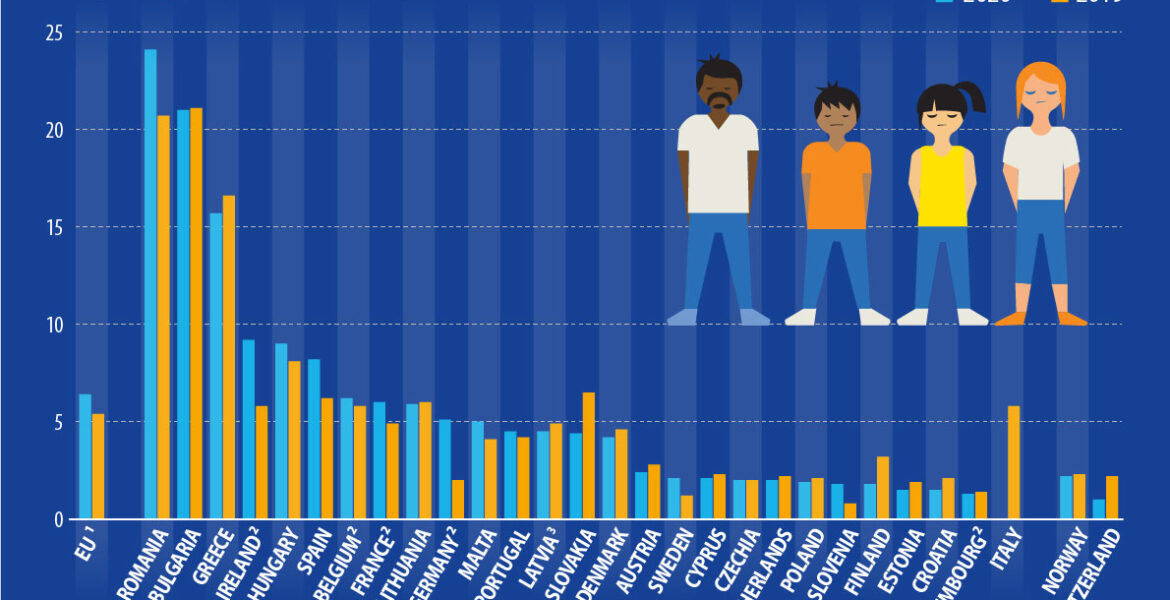Greece has the third highest proportion in the EU of young people who were severely materially and socially deprived in 2020 according to the latest data published by Eurostat.

In the EU in 2020, the severe material and social deprivation rate among young people (aged 15-29 years) was 7%. When compared with 2019, this increased by 2 percentage points (pp). The severe material and social deprivation rate among the total population was the same (7%).
Among the EU Member States, the highest proportion of young people who were severely materially and socially deprived in 2020 was recorded in Romania (24%), followed by Bulgaria (21%) and Greece (16%). On the other hand, the proportion was less than 3% in 11 of the 26 Member States with available data: Luxembourg, Croatia, Estonia, Finland, Slovenia, Poland, Netherlands, Czechia, Cyprus, Sweden and Austria.
When comparing 2020 with 2019, the largest increases in the severe material and social deprivation rate for young people were recorded in Romania, Ireland and Germany (all +3 pp; break in time series for Ireland and Germany). Meanwhile, the largest decreases were recorded in Slovakia (-2 pp), Finland, Greece and Croatia (all -1 pp).
When comparing 2020 with 2019 amongst sub age groups, Romania recorded the largest increases in the proportions of 15-19-year-olds and 25-29-year-olds who were severely materially and socially deprived (around +4 pp). When it came to 20-24-year-olds, the largest increase was recorded in Ireland (+5 pp).
At the other end of the scale, the largest decreases were recorded in Slovakia (-4 pp among 15-19-year-olds), Malta (-3 pp among 20-24-year-olds) and Greece (-2 pp among 25-29-year-olds).
This article is being published on the occasion of the EU Industry Days. This is a flagship annual event, highlighting industrial frontrunners and ongoing industrial policy discussions whilst improving the knowledge base of European industry. It will also hold discussions on how the young generation can shape the future of EU industry, in line with the Commission proposal to make 2022 the European Year of Youth.
[Eurostat]


